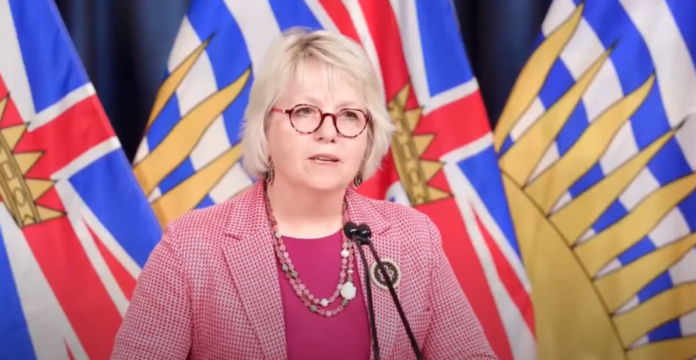The B.C. government has declared the end of respiratory illness season, hand in hand with the launch of its spring COVID-19 vaccine campaign.
In a press conference on Friday, Provincial Health Officer Dr. Bonnie Henry said that although COVID-19 hospitalizations have hit their lowest levels since the summer of 2020, historically, there has been a resurgence in the spring and summer months.
“Although we’ve passed the peak of respiratory illness season, we know that these viruses continue to circulate, particularly COVID-19, and in the last couple of years we’ve seen a resurgence in the spring and summer.
We don’t have any evidence of that yet this year, but we still need to be really careful and continue to use our healthy habits that prevent us from getting sick and from passing illness on to others.”
Henry says respiratory illness season, including influenza, COVID-19, and RSV in particular, started slightly later than in previous years.
The province also saw a double peak of influenza in February and March, primarily H1N1 cases.
However, in recent weeks, there has been a decline across the province, reflected in emergency room visits and wastewater surveillance.
COVID-19
As of the end of March, the province has administered 1.1 million doses of COVID-19 vaccines and 1.3 million doses of influenza vaccines.
That said, Health Minister Josie Osborne says the province is hoping to administer more through its spring campaign, particularly for high-risk individuals.
“This spring, we are focusing on protecting those at the highest risk of severe illness from COVID-19. Starting on April 8—that’s less than two weeks from now—notifications will be sent out to priority populations.”
Osborne says that with COVID-19 and measles circulating in the province, it’s more important than ever to stay up to date on immunizations.
“It helps reduce the strain on our health-care system and provides for a safer, healthier province for everybody. We also have to continue with those healthy habits that we have learned.
That means cleaning our hands often, staying away from others when we feel sick, covering our sneezes and coughs, and ensuring that people who are ill continue to seek appropriate medical care.”
The province is also ending the mask requirement for medical facilities on April 8.
Measles
There are currently five confirmed cases of measles in B.C., all in the Lower Mainland and all related to travel in areas of the world where outbreaks are occurring.
“This number may seem low, but we have to be cautious because measles is such a highly contagious disease, leading to serious complications like pneumonia and brain inflammation. In rare cases, and tragically, it can also be fatal,” said Osborne.
There is no cure for measles, but it is preventable through immunization.
Adults born in 1970 or later should ensure they have received two doses of a measles-containing vaccine, as one dose is not enough to ensure adequate protection.
Adults born before 1970 are generally assumed to have acquired immunity to measles from exposure before immunization was widely available.
In B.C., children are routinely provided with two doses of a measles-containing vaccine. The first dose of the measles, mumps, and rubella (MMR) vaccine is given at 12 months, and the second dose of the measles, mumps, rubella, and varicella (MMRV) vaccine is given at four to six years.
Children six months and older who are travelling to parts of the world where measles is more common can receive the MMR vaccine prior to departure. They will then require two additional doses of the vaccine after they reach 12 months to be fully protected.
Children between one and four years old can also receive their second dose early if travelling to areas where measles is spreading.
Be the first to know! Don’t miss out on breaking news and daily updates in your area. Sign up to MyEastKootenayNow News Alerts.




